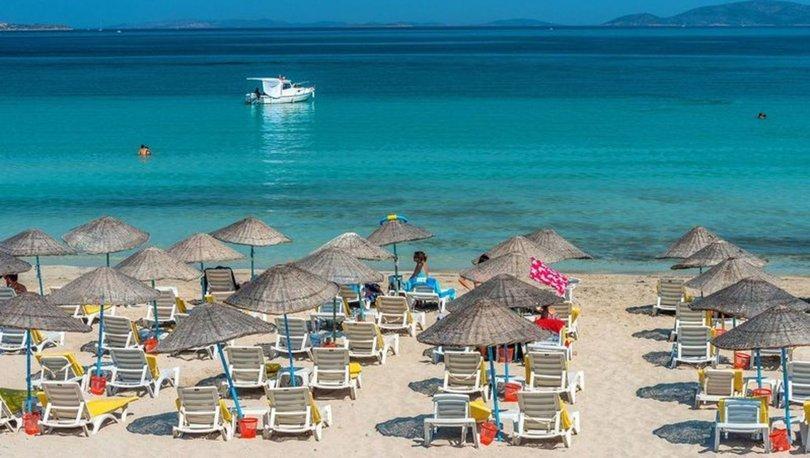
Representatives of leading Germany-based tourism agencies will visit Turkey’s Aegean province of İzmir, resort down Kuşadası and Mediterranean resort city of Antalya to examine the safe travel certificate program on site, Turkish authorities and an airline said yesterday.
Tourism professionals, including officials from German weekly Touristik Aktuell, and operators TUİ and Altours, will stay in İzmir and Kuşadası from today until July 20 to see the measures taken to protect tourists from the coronavirus pandemic, according to a statement by the Culture and Tourism Ministry and SunExpress, a joint venture of Turkish Airlines and Lufthansa.
“Our ministry has introduced the Safe Tourism Certification Program. Turkey had concluded all its preparations for the new tourism season when domestic and international flights resumed [in June],” said Deputy Culture and Tourism Minister Nadir Alpaslan.
“Turkey is conserving its power in tourism. We have the necessary infrastructure and equipment to overcome this hardship time that the world is enduring,” he added.
Last month, the ministry hosted ambassadors from more than 50 countries in Antalya, the heartland of the Turkish tourism industry, in a bid to provide confidence that all precautions - from hygiene and social distancing rules to health infrastructure and transportation - have been taken properly.
“After the event in Antalya, we have taken very positive feedbacks from ambassadors,” said Alpaslan.
“We saw that the Safe Tourism Certification Program has drawn huge attention from the international press from Germany to Britain, Japan, Ukraine, Russia and the Netherlands,” he added.
German tourism professionals will visit facilities in Antalya between July 23 and 26.
More than 727 hotels and about 900 restaurants applied for a “Safe Tourism Certificate” that would indicate they had taken standard measures to prevent COVID-19 infections as of end June, according to the ministry. Any hospitality facility with more than 50 rooms is obliged to take part in the program.
The Turkish government also introduced a health insurance system for foreign travelers and its citizens residing abroad with a limit between 2,000 and 7,000 euros and a cost between 13 and 33 euros. For a one-week stay, the limit of 7,000 euros can be purchased for 23 euros, and the insurance covers health expenses including a coronavirus treatment.
Tourists can also opt for having a fast-track coronavirus test at an airport on the way back home for 15 euros.
Turkish Culture and Tourism Minister Mehmet Nuri Ersoy and Foreign Minister Mevlüt Çavuşoğlu held dozens of talks with their counterparts in about 70 countries, including Germany, on the possibilities of resuming tourism activities in recent weeks. They also paid a visit to Germany at the start of this month.
Although they have not received a positive response to include Turkey in the safe travel list of Germany and other European countries yet, tourists from Germany may soon have the chance to travel to Turkey for their summer holiday, said Thomas Bareiss, Germany’s commissioner for tourism, on July 5.
“Every country should be treated fairly, and I am pretty confident that tourism activity between Turkey and Germany will resume soon,” he told German broadcaster NTV.
Over 21,000 foreign tourists visited Antalya in June, down from 2.2 million in the same month of last year, according to the Culture and Tourism Ministry data. The province welcomed more than 27,000 foreigners just in the first week of July, while Ukrainians made the bulk of the figure with 10,498 trippers.
After attracting a record number of visitors with 51.9 million people in 2019, Turkey was targeting a total of 60 million tourists in 2020 before the coronavirus crisis.
The country’s tourism revenues hit $34.5 billion in 2019, a new record high, according to official data. The figure jumped 17 percent last year, up from $29.5 billion in 2018.